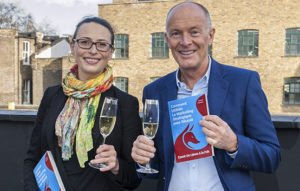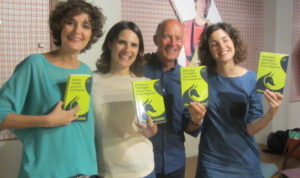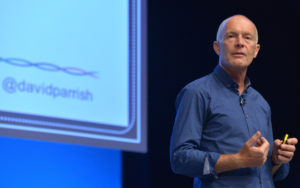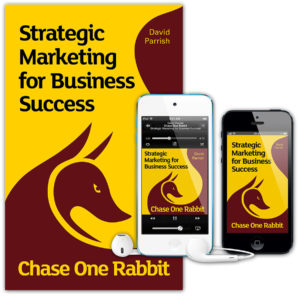Marketing is all about looking at things from the customer’s point of view. That requires understanding customers and, indeed, listening to customers. Don’t do market research! Listening to customers is the term I tend to use, instead of the phrase ‘market research’.
That’s because ‘market research’ tends to conjure up the idea in people’s minds of very formal exercises, undertaken at huge expense by big corporations. If I suggest to smaller businesses that they undertake ‘market research’, their initial reaction is that it’s completely out of the question, because of the cost. The term ‘market research’ isn’t useful. So instead, I talk with clients about how they might ‘listen to customers’. Using this different phrase sounds much more down-to-earth, more do-able, and much more like common sense. All of a sudden, it seems feasible to listen to what customers have to say about their needs and our products. Because the term ‘listening to customers’ is more accessible, we can then move on to a conversation about how this might be achieved.
Market research, or ‘listening to customers’, is not so much a collection of techniques and processes; more fundamentally it’s an attitude. It’s a way of thinking about customers and our relationship with them. It’s a matter of acknowledging that maybe customers have something important to tell us, not only about themselves, but also about our businesses. Yes, perhaps customers know things about our business that we don’t know ourselves. We have to be open to the possibility that we don’t know everything, even about our own enterprises. If our attitude is complacent, assuming that we know everything there is to know about our business and customers’ needs, market research will never happen. Because with this attitude there’s nothing we can learn from listening to customers. Some entrepreneurs think they know it all already. They believe they simply have to talk at customers, not waste time listening to what they might have to say.
In my view that’s arrogant and foolish. And it’s very bad business. On the other hand, we can take an authentic interest in how customers perceive our business. We can be curious about their current and future needs. We can ask them what they really think about our products. We can be intrigued about how they see the benefits on offer from our business. We can ask about their problems and then devise solutions to those problems to sell to them. Instead of being arrogant we can be ready to listen. This is the breakthrough – from this point onwards listening to customers becomes easy, because there’s a will to do so. All it requires is a genuine openness to hearing what customers might have to say. The rest is detail. From here it’s just a small step to finding practical and useful ways of creating a dialogue with customers.
If you don’t think customers are worth listening to, then read no further…
On the other hand, perhaps you do actually care what customers think. Do you want to hear new ideas and attitudes? Are you prepared to be surprised? Would you value new insights from the minds of customers? If so, then read on. With this authentic inquisitiveness, you’re in an excellent position to make further steps to gain an advantage on rivals. You’re on the verge of gaining a better understanding of the ways customers think, how they behave, what they want, and what they value.
At its simplest, you could phone a sample of customers to ask them about your products. You could invite a small number of customers to an informal focus group. This could be in a relaxed, informal setting, to generate discussion about their ideas, experiences, and attitude towards buying your products and those of your competitors. Simple techniques such as reply cards, short questionnaires, and online surveys might all have their place to play and can be manageable and affordable even by smaller businesses. Listening to customers can also be undertaken at the point-of-sale. Winning customers need not be a one-way process of selling to them and talking at them. It’s all about taking the time to listen, showing an interest in what they think, and simply creating space for them to enter into a dialogue.
Key Points
Market research is fundamentally an attitude – a belief that we can learn useful things from customers. It needn’t be a huge expensive exercise. Instead use the term ‘listening to customers’ to help you think of practical and inexpensive ways to open up a dialogue with key customers. You’ll gain information and ideas to help you beat rivals.
What to do next
– Use the term ‘listening to customers’ so that market research doesn’t sound out of the question but down to earth and doable. Find inexpensive practical ways to listen to customers’ views, needs and ideas.
– Make a list of things you would like to find out from customers. Write down the names of ten customers. Ask them.
This is an extract from David’s marketing book ‘Chase One Rabbit: Strategic Marketing for Business Success. 63 Tips, Techniques and Tales for Creative Entrepreneurs’.
Read this and 62 more inspiring and practical marketing techniques on your smartphone by downloading this strategic marketing book as an eBook. It is also available as a paperback and as an Audiobook. This highly-acclaimed marketing book is also available in Spanish and French.
David Parrish is a marketing speaker, author and consultant. He works worldwide helping businesses to become even more successful by using the best strategic marketing techniques.

French edition translator Florence Magee (neé Harmelin) with author David Parrish

Celebrating the launch of the Spanish translation of the marketing book in Spain
David Parrish is an international keynote speaker and author on marketing. He makes speeches and presentations on marketing authentically and other marketing strategies and techniques.
He works world-wide as a marketing speaker and consultant, advising creative businesses, digital enterprises, cultural organisations and other enterprises on their marketing strategies and marketing authentically. David has a track record in helping businesses to make their marketing strategies more successful by providing marketing advice that is in tune with clients’ values and objectives. He works in partnership with his clients to devise winning marketing strategies and action plans that deliver successful results. Marketing authentically is often an important part of a strategy devised with a business using David as their marketing consultant.
David Parrish shares his marketing expertise through his marketing keynote speeches and presentations, interactive training workshops, books and business advice consultancy with individual clients worldwide. He applies marketing authentically in his strategy for his own international business.
“David helped us to devise a marketing strategy which focuses on our competitive strengths and the best market segments. Using effective marketing techniques we have improved the way we connect our creative talents with profitable markets.”
– Janina Gaudin. Director. Pepperbot Studios Ltd. New Zealand
Read more testimonials from David’s clients around the world.

